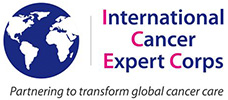Just released! Read the ICEC Essential News Letter
The July 2017 issue of the “ICEC Essential News Letter” provides a detailed overview of our current activities. These include the efforts of our Early Career Leaders expanding twinning partnerships; ICEC’s endeavors to develop and make more accessible, first-rate radiation treatment systems capable of functioning in challenging environments and developing countries; and implementing the ICEC 5-Step […]

